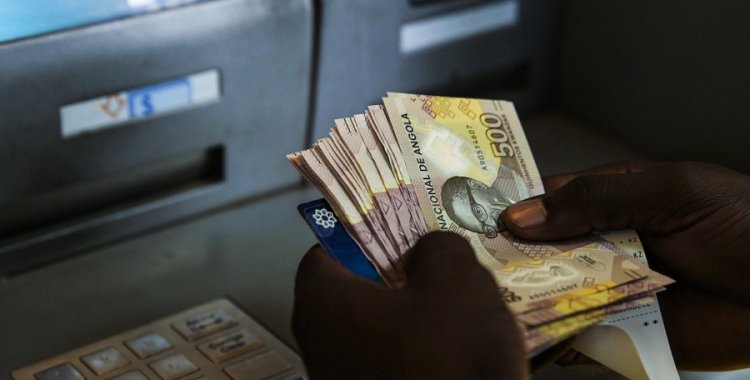The survey carried out by the National Statistics Institute (INE), whose results were presented this Wednesday, began in February 2022, with data collection lasting four months, with interviews with 35,190 families, of which 26,000 from urban areas.
According to data released this Wednesday by INE, the percentage of Angolans who master financial concepts is 24.7 percent, mostly women (55.1 percent) and in urban areas (62.2 percent).
The document reveals that just under 32 percent of the population aged 15 or over, which corresponds to 5.6 million individuals, has a bank account, of which around 84 percent have a debit card (multicaixa) asset, which uses for payments.
"Of the approximately 68 percent who do not have a bank account, the main reason was the lack of income that justifies opening an account", indicates the study, highlighting that among those who do not have a bank account, approximately 68 percent were employed, 25 percent unemployed and 7 percent inactive.
The second reason given by those who do not have a bank account is the lack of documents (12.4 percent), followed by the lack of a nearby bank branch (7.1 percent), not seeing any benefits (5.2 percent), not trusting banks (1.2 percent) and not having a bank agent nearby (1.0 percent).
Regarding those who have bank accounts, 56 percent use them only once a month, 16 percent two to three times a week and 14 percent once a week.
Regarding multicaixa card users, 83.8 percent use this instrument, while 4.2 percent do not use it and 12 percent do not have one.
Regarding savings habits and retirement planning, the survey shows that, of the population over 15 years old, around 5 percent have ever sought legal advice to resolve issues related to their bank account and, of these, "81 percent declared evasion of money in your account without your knowledge or consent, as the main reason for seeking advice".
Only 4 percent of the population aged 15 or over has insurance, around 56 percent have knowledge about savings and 36 percent save, of which 54 percent do so monthly.
The majority of respondents (73 percent) still prefer to keep their savings at home and 35 percent invest them in a banking product, with around 37 percent of the target audience having heard about retirement or old-age pension, and of these only 18 percent have a retirement plan.
When it comes to banking investment and choosing financial products, 20 percent of the population is aware of this topic, but only 2 percent makes use of them.
"Of these, 83 percent use their respective term deposits as a financial investment product", indicates the document, adding that around a third (33 percent) of the population said they knew about interest.
In his opening speech, the director general of INE, José Calengi, said that the results will be important for the formulation and correction of policies in the financial and banking sectors, in particular.
The executive administrator of the National Bank of Angola (BNA), Marília Poças, said that the central bank has already carried out more than 1,200 financial literacy training actions, from 2021 to date, which have benefited more than 62,400 people.
"However, the results presented show us that the path we still have to take is challenging and there is an urgency to reinforce our actions", said Marília Poças, adding that Presidential Order 201/2023, of 25 August, created the Commission of Coordination of the National Financial Inclusion Strategy.
The commission is responsible for preparing the National Financial Inclusion Strategy, a document that aims to systematically establish, promote and monitor levels of financial inclusion in the country.







